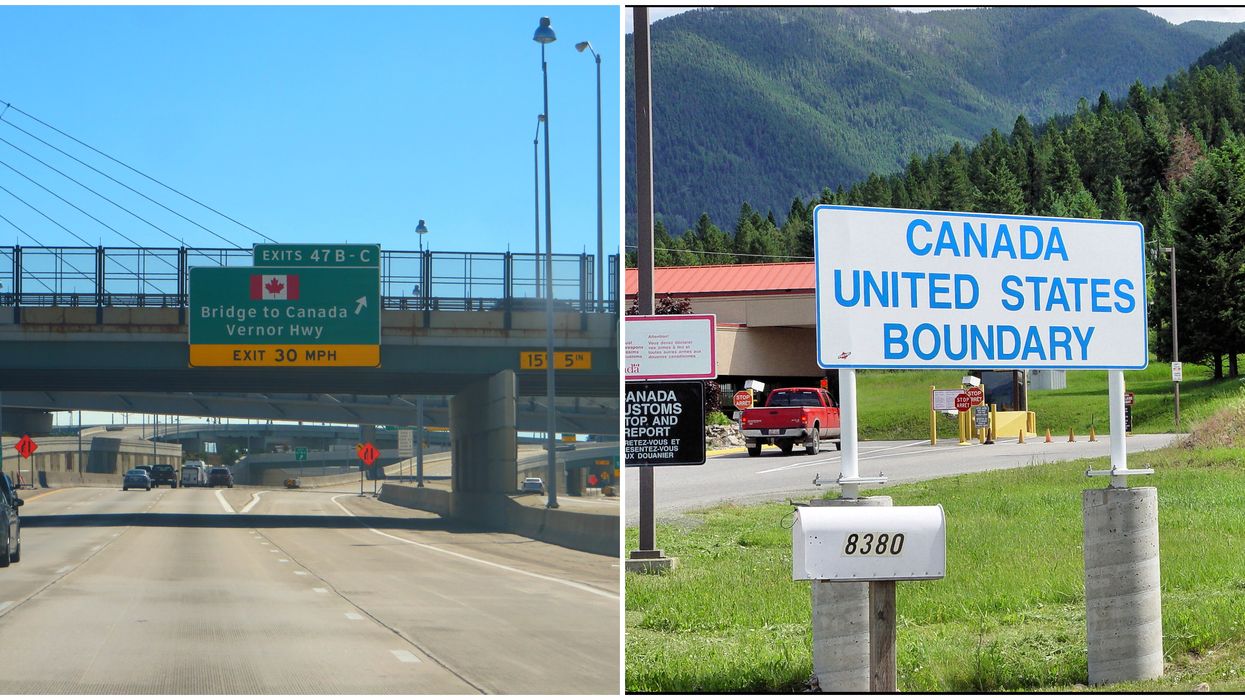The Canada-US Border Closure Is Expected To Be Extended Into The Summer (VIDEO)
Restrictions could be in place for another month. The Canada-U.S. border closure is expected to be extended into the summer according to reports. So, travel to our neighbouring country will probably have to wait a little longer.
Reuters first reported the possible extension on June 9, citing sources from both countries.
No final decision has been made by the two governments just yet but it's very likely that restrictions on travel will continue on into the summer based on insider information.
When the agreement is supposed to end on June 21, there will "be a clean rollover" and the closure will be looked at again in July according to a U.S. source.
Following the report from Reuters, CBC also got confirmation from sources about the likely extension.
Both countries are also reported to be happy with the current 30-day border closure arrangement that first began in March and that has since then been extended.
A spokesperson for Deputy Prime Minister Chrystia Freeland told CBC that Canada and the U.S. are in agreement that the travel ban has worked well.
The original border closure that banned all non-essential travel back in March was put in place because of the COVID-19 pandemic.
As of June 9, the U.S. has 1,956,421 cases, which is an increase of 17,598 from the previous day and 110,925 deaths.
In Canada, as of that same date, there are 96,653 cases along with 7,897 deaths.
Canada has made some exceptions when it comes to the border closure.
People who are the immediate family of Canadian citizens and permanent residents are now allowed to cross over from the States.
That includes spouses, common-law partners, dependent children and more.
There are rules in place for people who come into Canada as part of this exception.
People need to be coming to be with a family member, not show any COVID-19 symptoms, have no reason to believe they have the virus and stay here for at least 15 days.
There is a mandatory 14-day quarantine period for anyone coming into Canada.
